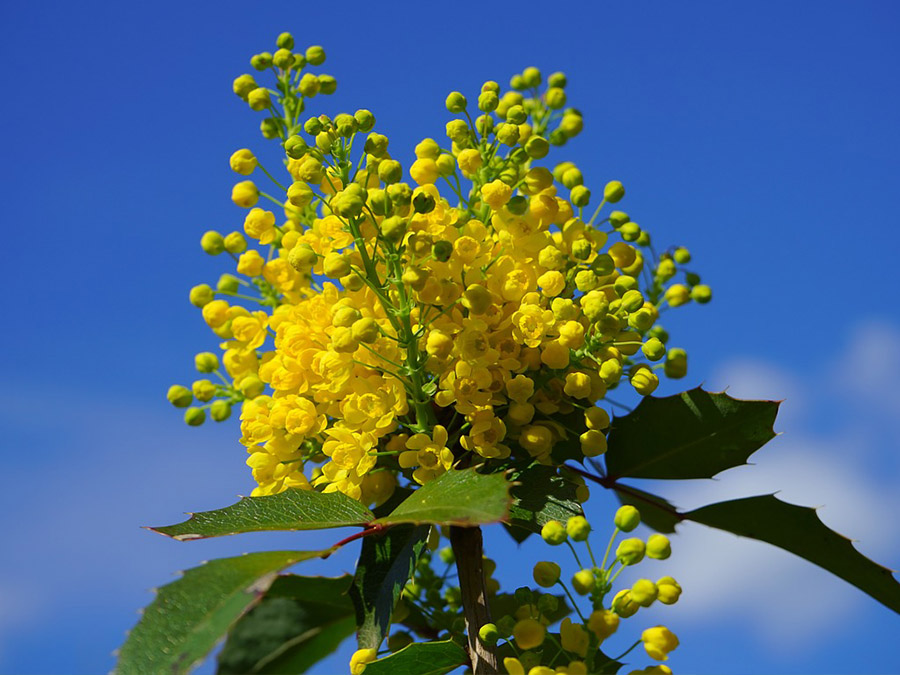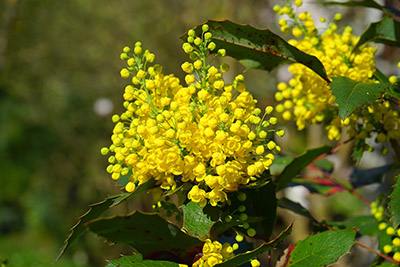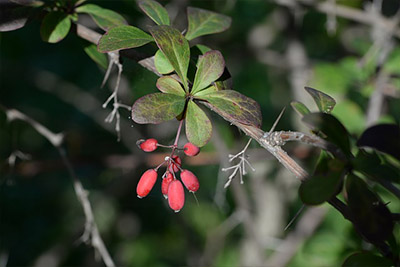Natural Herbal Antibiotics

Long before antibiotics were invented by Sir Alexander Fleming there have been herbs used all over the world to treat serious disease outbreak and to help prevent them. Many of our recent forebears led their entire lives with no resource to antibiotics.
We are in an “apocalyptic era” concerning antibiotics as “we wait for an emergence of a nightmare bacteria”, according to Sally Davies Chief Medical Officer for England. How we tune ourselves into alternatives both during an immune crisis and in preventative ways of life is down to us. Overuse of antibiotics both in the meat rearing chain with vets and doctors has had its toll and many diseases have become antibiotic immune and serious disease now risks attending everyday procedures in hospital.
Let’s look at some useful herbs and how they work.
Berberine Rich Herbs
These are plants which contain the compound Berberine. Berberine interferes with bacteria’s ability to adhere to any mucous membrane. It does this by stimulating the release of lipoteichoic acid from bacteria.
These Berberine rich plants are active against:

Mahonia
Candida Helicobacter Pylori
Chlamydia Hepatitis B
Dengue fever vins Herpes Simplex 1 & 2
Escherichia Coli Klebsiella Penumoniae
Giardia Lamblia
Mycobacterium Tuberculosis Staphylococcus Aureus
Salmonella Paratyphi & others Streptococcus SP
Shigella SP Trichamonas Vaginalis
Herbs rich in Berberine (Herbal Antibiotics) are :
Mahonia / Oregon Grape Root ( Berberis aquifolium)
Barberry ( Berberis vulgaris)
Goldenseal (Hydrastis canadens)
The Berberine compound is yellow and found in lower stems and roots of all these three plants. (Folklore has it that Goldenseal disrupts normal working of gut after a while, this is
not true. In fact Goldenseal used with Candida over a period of time, dries out the gut and prevents the moist wet conditions that fungus love.)

Barberry
Berberine Rich Plants
They are able to be:
• Anti-inflammatory
• Anti-septic
• Anti-tumour
• Anti-amoebic
• Astringent
• Anti-diarrheal
• Anti-fungal
All Berberine rich plants work particularly well in the gut or on mucous membrane areas like nose, mouth and ears. They also work well topically, eg for skin disorders.
They are not systemic in action e.g. they don’t work outside the gut, they are unable to move around the body. Goldenseal is very expensive and often collected once a year if of wild origin, this is done under a strict certification system. Otherwise it is grown organically. Much cheaper and more accessible is Mahonia and Barberry. (We will see both at The Royal Botanic Gardens, Kew on our summer visit together.)
Other Useful Plants
Juniper is a common wild European plant and it’s the purple juniper berries that are used. The berries are effective against 57 strains of 24 bacterial species! They are also effective against various cancer cell lines, SARS and Herpes Simplex! Use 20 berries x 2 daily for severe bacterial overload and drink plenty of water as it is also a ‘urinary specific’, so will exit endotoxins through this elimination channel. The berries incur no side effects on the kidneys (old myth) but low doses are advised for medicated diabetics and for short term use only as they may alter insulin requirement as they help release insulin from the pancreas (helpful for hypoglycaemia). [Juniper foliage is Vitamin C rich, so a tea can be useful].
Other kitchen foods which are potent Anti-bacterials
• Ginger (freshly grated and eaten raw)
• Black pepper (ground and eaten raw)
• Rosemary
• Oregano
• Thyme
• Lemon
• Horseradish
Propolis
Honey bees collect propolis from tree resins. Essential oil rich plants and more. They use the propolis to make important repairs and keep structures clean and strong in the hive. Propolis is just as potent for us, an invaluable immune support of very high calibre; though not a plant!
Ginkgo, olive leaf, Burdock root, garlic, cayenne pepper, Marigold and Elderberry
These are all antibacterial antiviral and antifungal.
Lemon balm is anti-viral.
Want to learn more? Enroll on the Herbal Remedies Course today!
Articles on this website are based upon the opinions of their respective author(s). None of the information on this website is intended as medical advice nor replaces the advice of a qualified health care professional.
